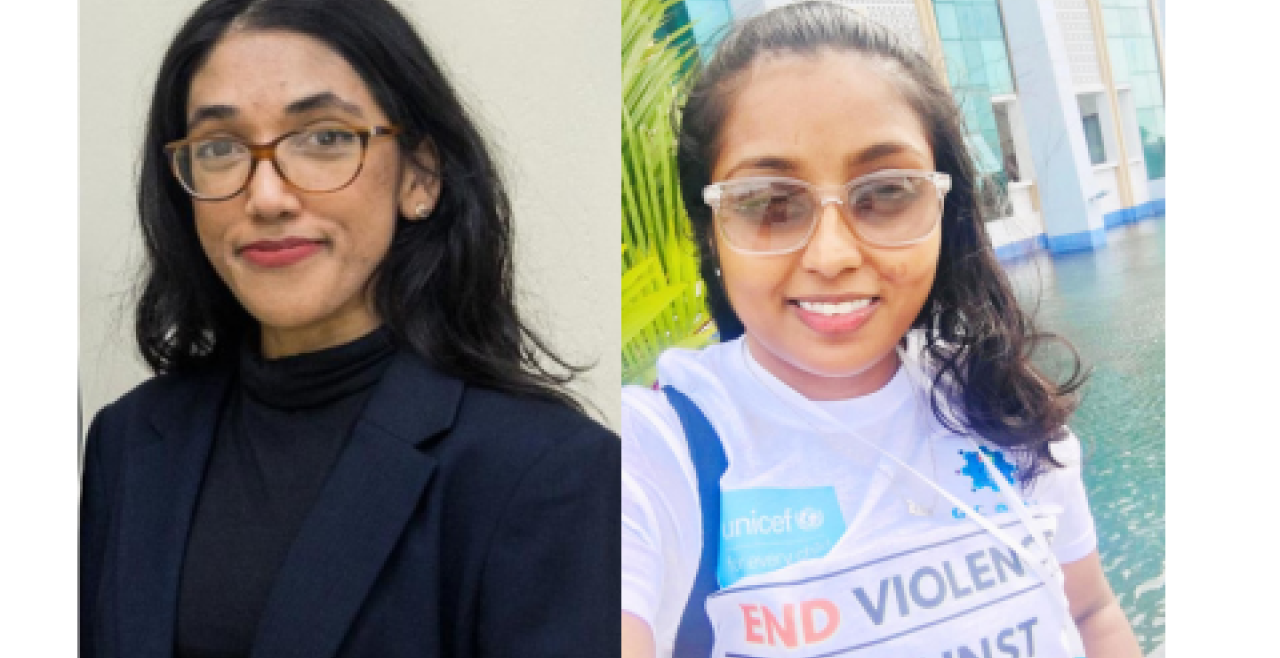In Guyana, supporting students and teachers to take a proactive approach to ending gender-based violence

GEORGETOWN, Guyana - Lata Devie Jagmohan is passionate about ending gender-based violence (GBV), having seen the impact it has on survivors and communities first-hand.
She is currently an Orientation and Mobility Officer for people who are blind or visually impaired and shared that she was eager to register for the “Resilience against and Disruption of Gender-Based Violence” (GBV) introductory course.
The course was launched by the University of Guyana (UG) in September 2022 and was developed in collaboration with the United Nations Children’s Fund (UNICEF) under the Spotlight Initiative to help service providers, policymakers and others who lead GBV interventions to address cases more efficiently and to strengthen reporting.
"It was a safe space, and everyone was comfortable sharing." - Lata Devie Jagmohan
As a member of the Guyana Council of Organizations for Persons With Disabilities (GCOPD), Lata Devie - who is also visually impaired - had participated in similar programmes in the past, but she says this course was like no other. “It was information based on interaction and experience, which students in the class participated in. It was a safe space, and everyone was comfortable sharing.”
The second-year UG student is studying to become a social worker and found the course useful in preparing her for her future career. “It was well conceptualized and had a lot of information that was new to me,” she shared.
Gordon Bishop, a teacher who attended, said he was impressed by the historical and recent statistical data on GBV provided during class sessions, particularly for the Caribbean region and Guyana.
He appreciated the fact that the course allowed former UG Social Work graduates to share their knowledge of the sector; that it included timely course evaluations to help plan effective GBV programmes that address current needs and issues; and that it allowed students to share their experiences with GBV and receive assistance.
“I'll use the knowledge I received in this course to raise awareness among parents, kids, and instructors in the classroom where I work,” he stated, adding that he will also take advantage of any opportunities to help students and coworkers who may be suffering from GBV.
“As a future social worker, I will use the information from this course as needed to help clients who are dealing with the psychological, physical, and emotional effects of GBV.”
"I'll use the knowledge I received in this course to raise awareness among parents, kids, and instructors in the classroom where I work." - Gordon Bishop
Kalina Bulkhan, a second-year Bachelor of Laws student at UG, says the course was “extremely forward in its approach to not just ask us to look at the problem of GBV as it currently exists, but how to tangibly and realistically create a future where we could educate Guyanese on how to improve gender relations and support female empowerment.”
She is hoping that the course can be offered more broadly across Guyana, not just to university students, but also to primary and secondary students, social clubs, in workplaces, during pre- and post-natal care for mothers – “any and everywhere that it can be offered.”
Since the end of the course, Bulkhan is in a better position to offer advice to others and inform them of the options for help available to them.
"I have no doubt that these experiences are only the beginning of us moving to disrupt the cycles of violence that have existed for far too long,” she said. “I can confidently say that since the end of this course, myself and several other students have been able to advise the women and men in our lives of the many options for help available to them, and this effect will only multiply as time passes.”
"I have no doubt that these experiences are only the beginning of us moving to disrupt the cycles of violence that have existed for far too long.” - Kalina Bulkhan
During the course, emphasis was placed on the relationship between GBV and gender power relations, gender roles and norms, and how socioeconomic, cultural and religious factors impact the causes and consequences of GBV. Students were also exposed to global and regional issues related to GBV while gaining a unique local overview of national interventions and learning about the importance of social change strategies toward ending GBV.
By Jasmaine Payne
